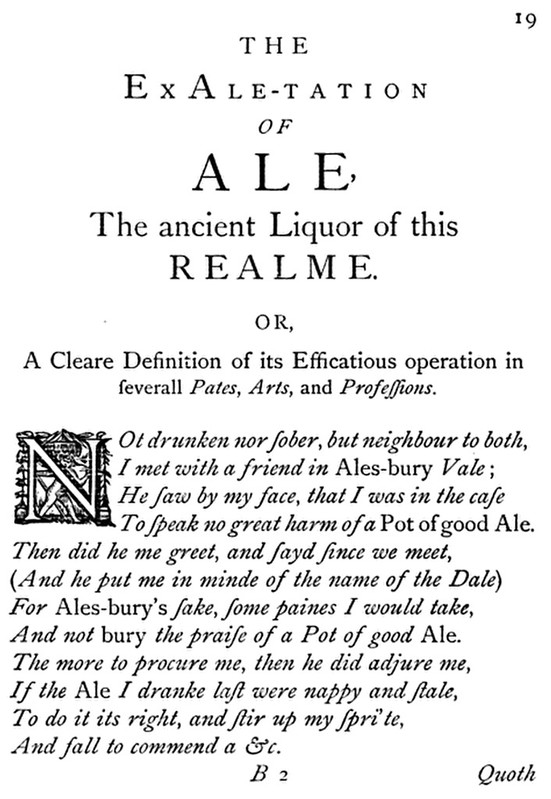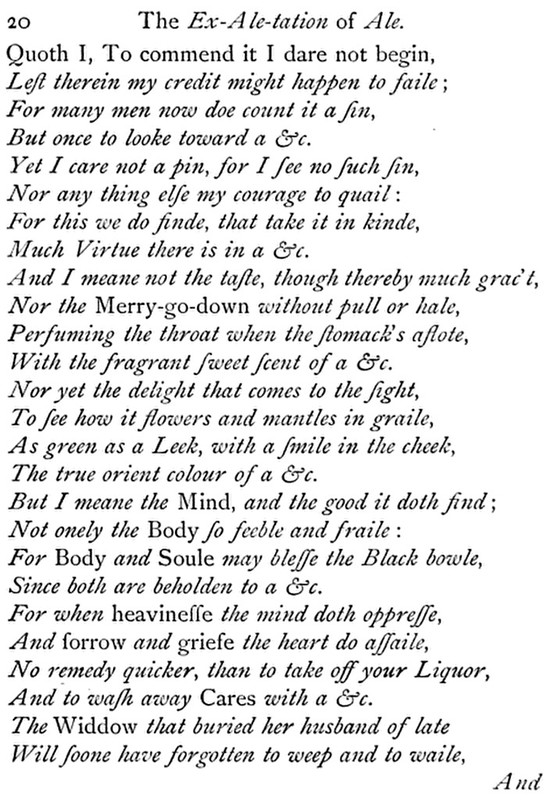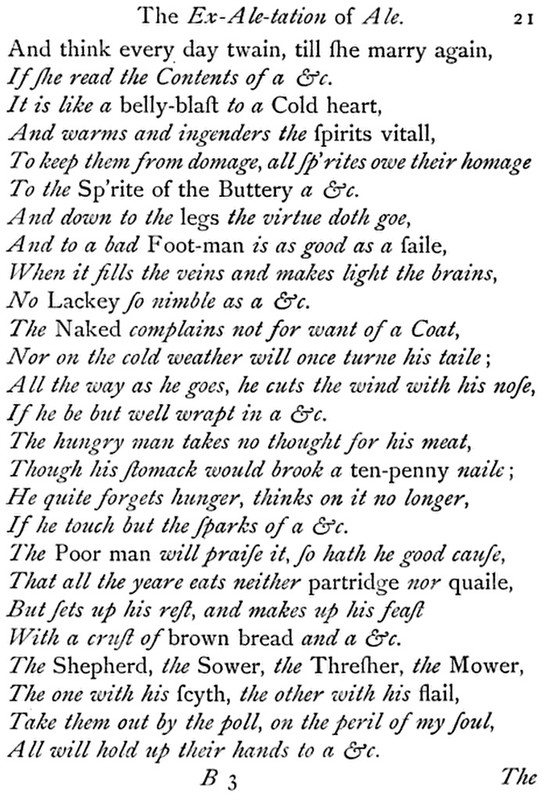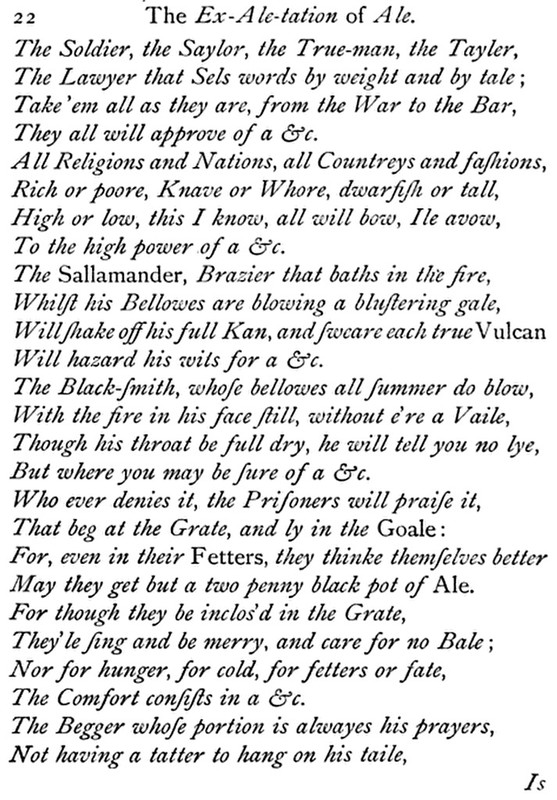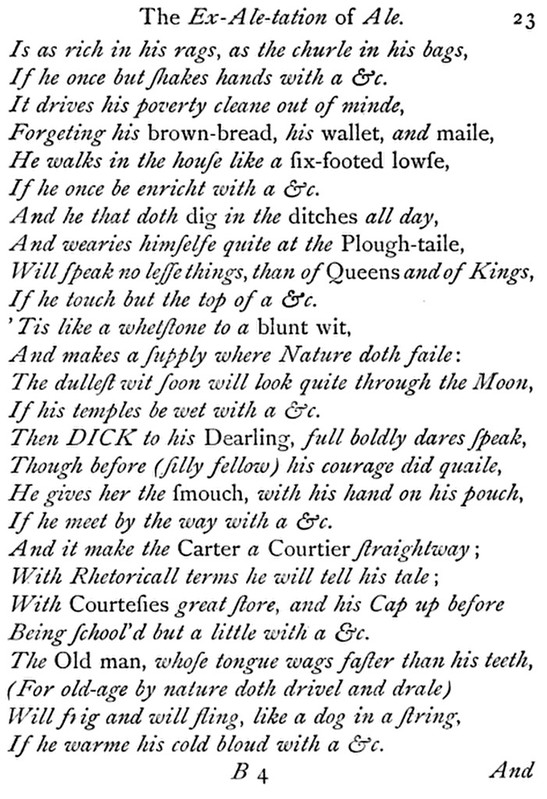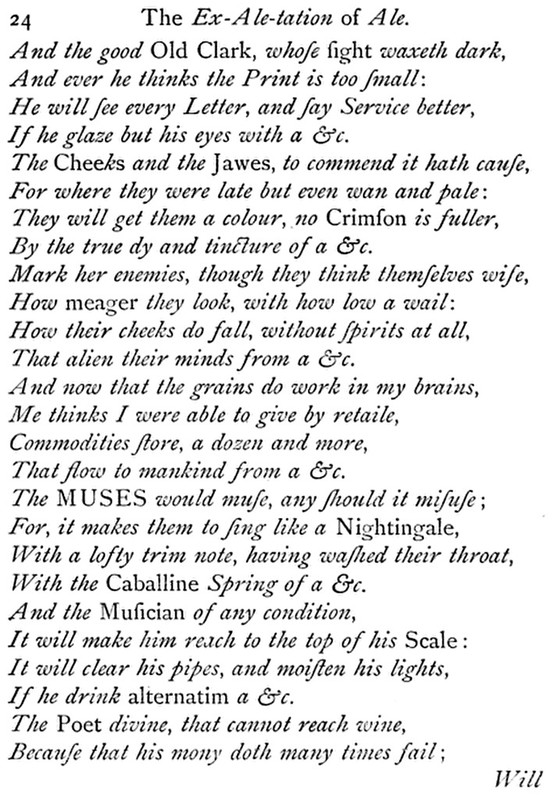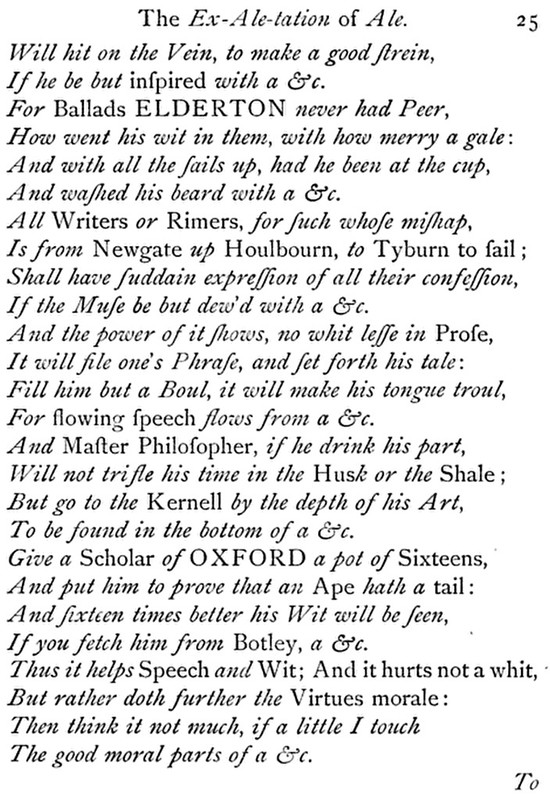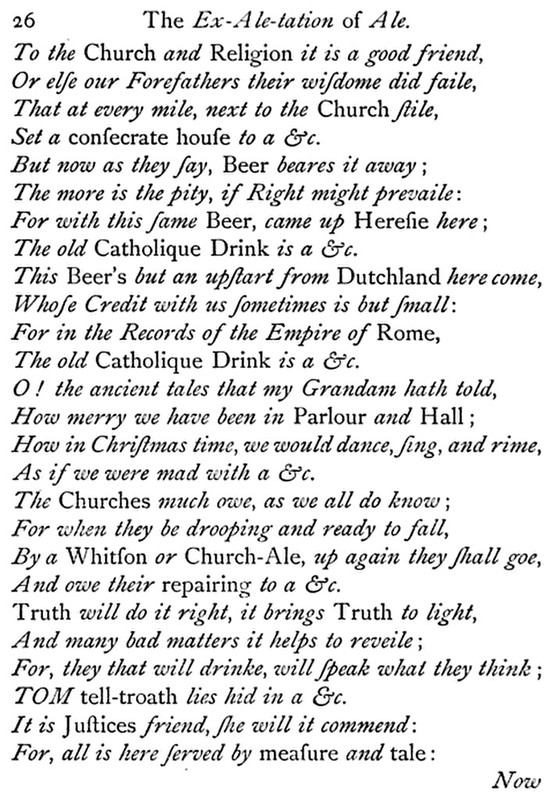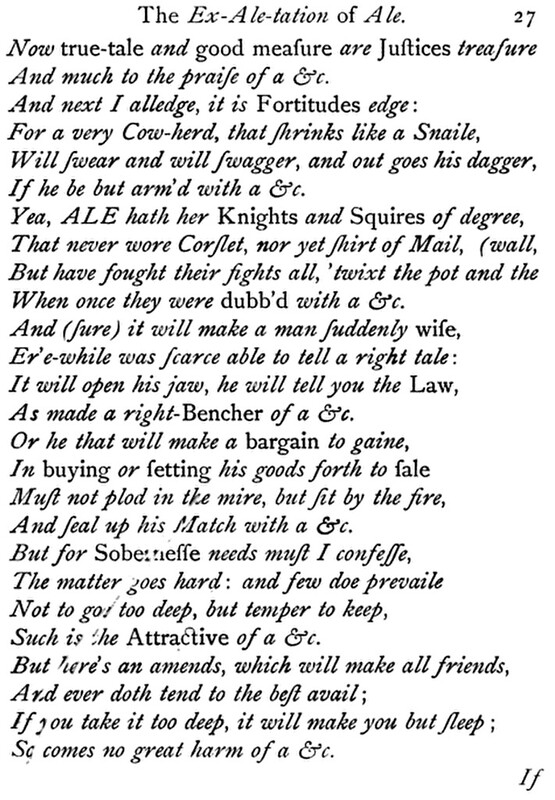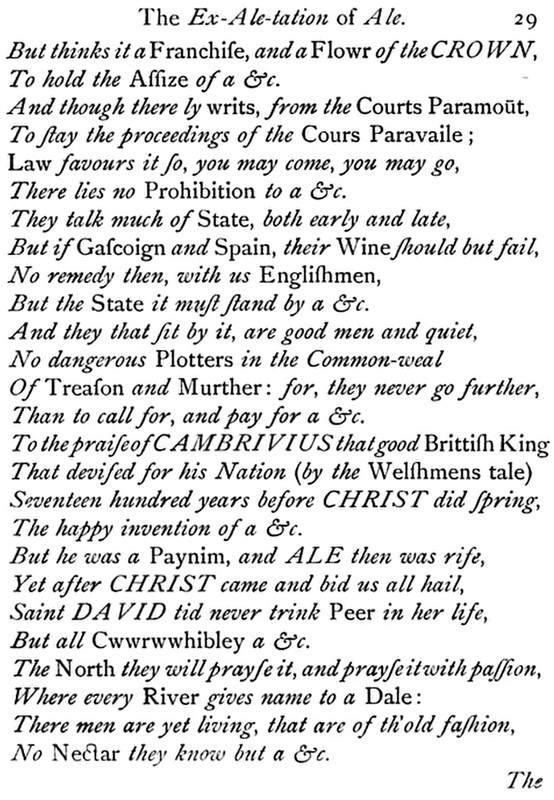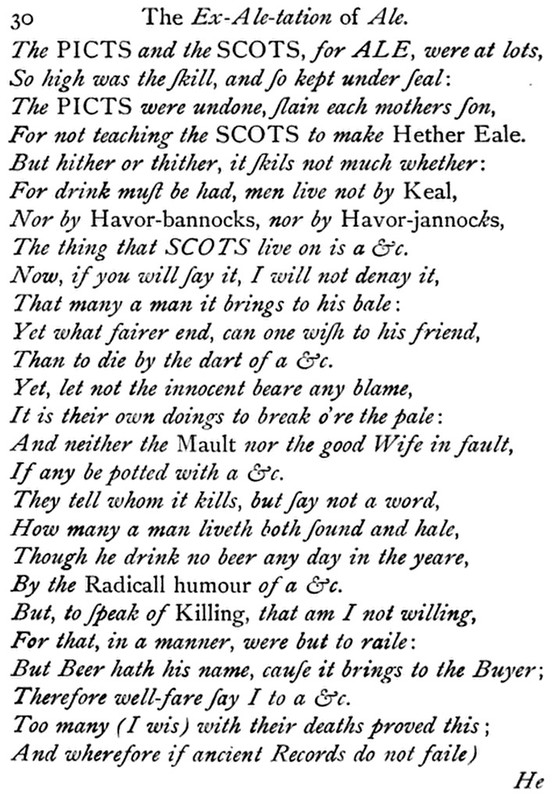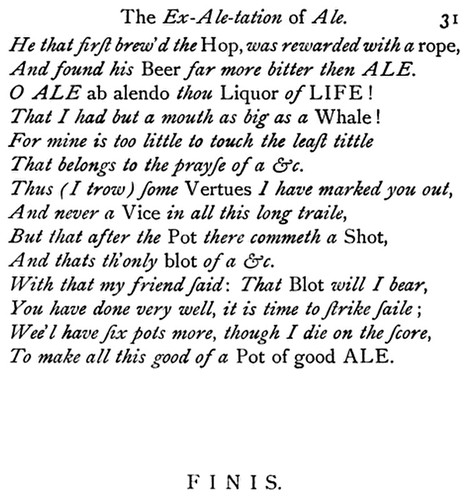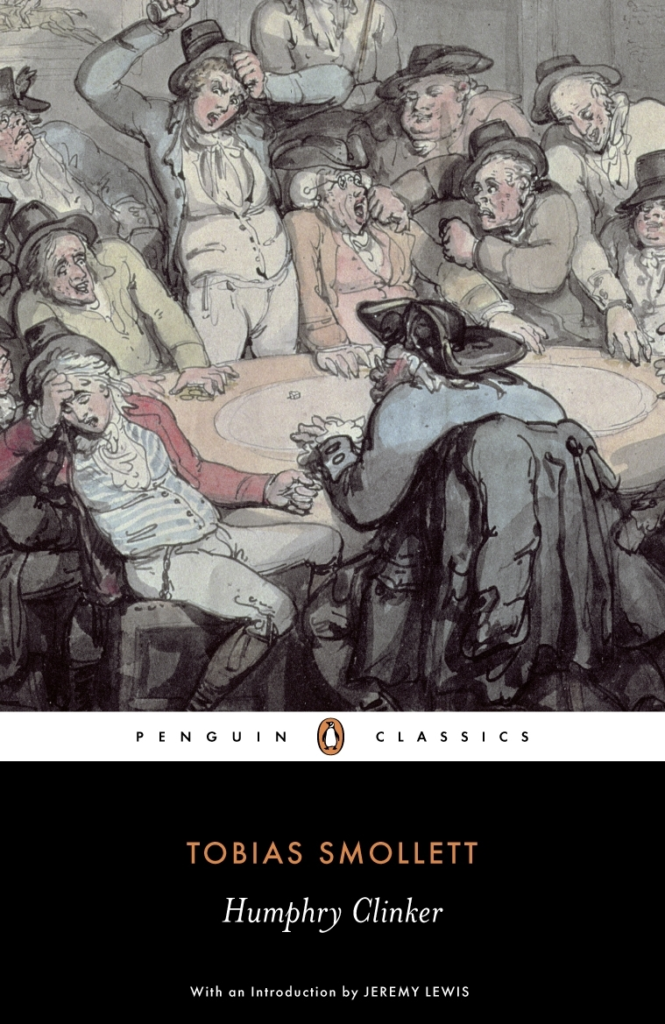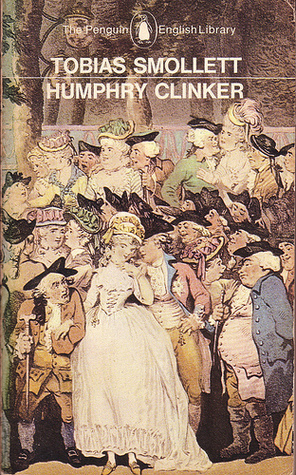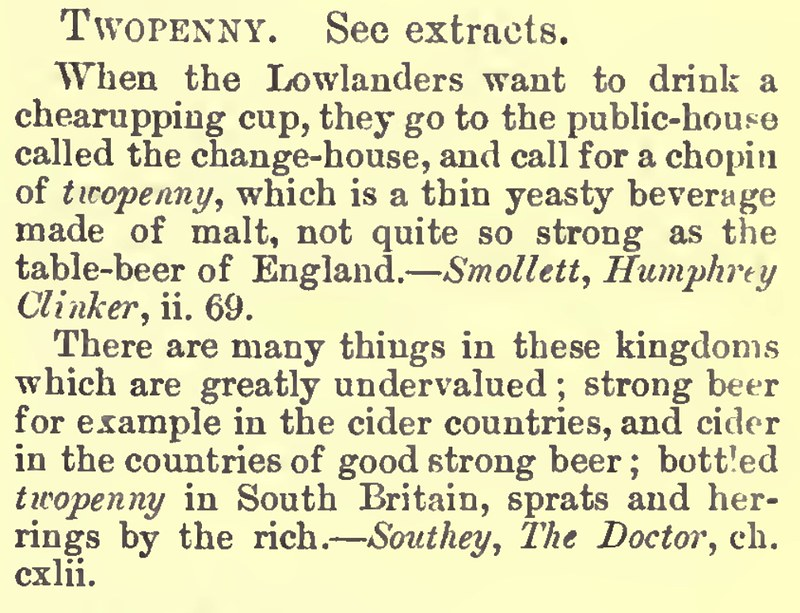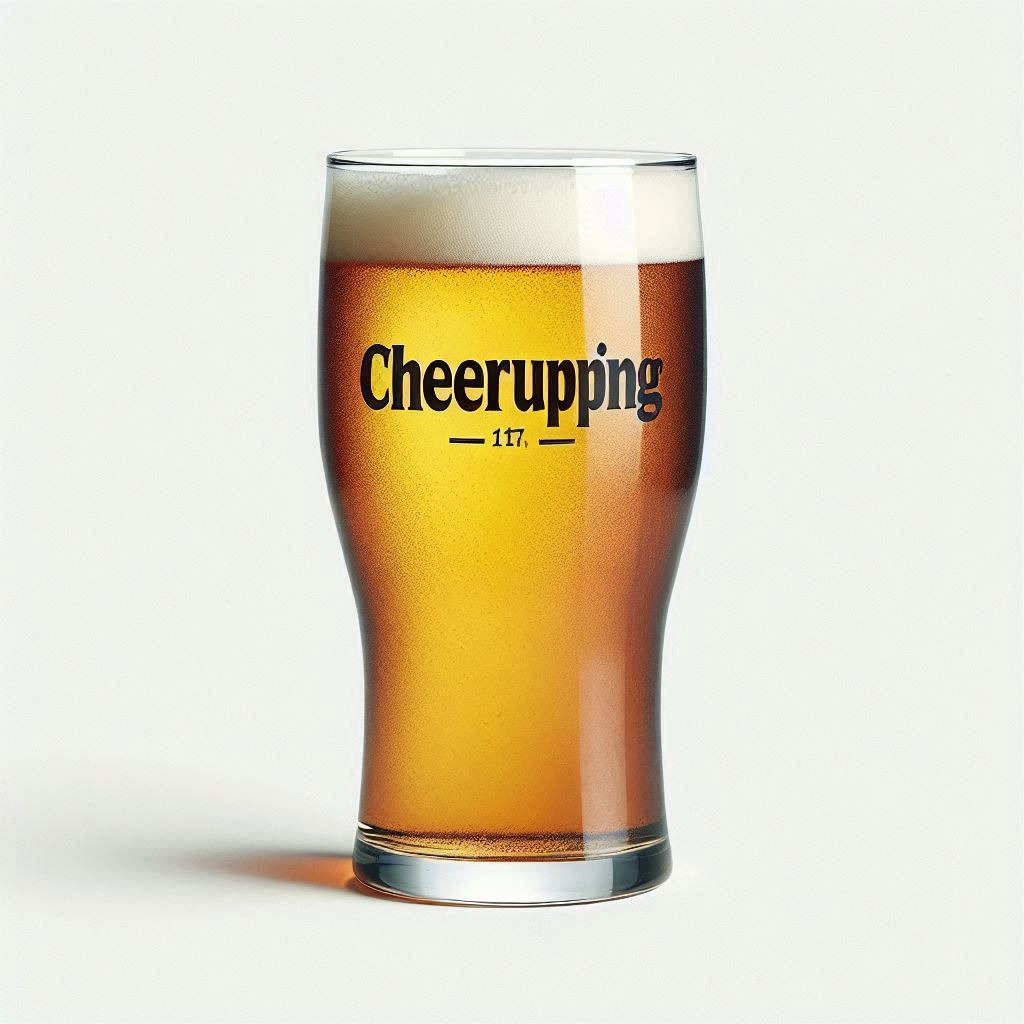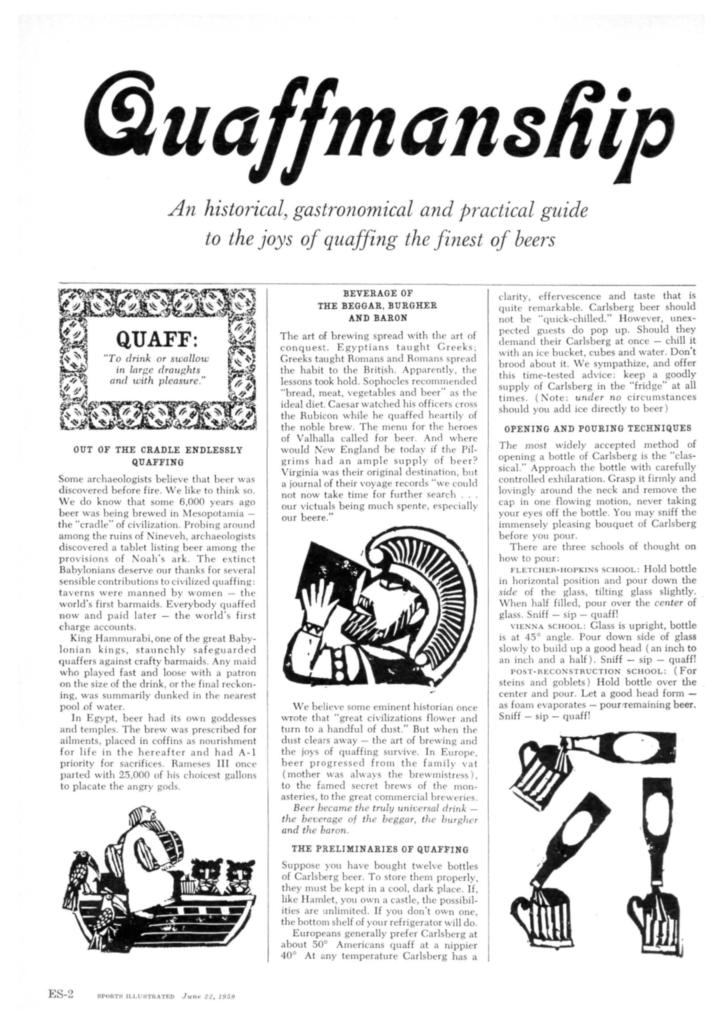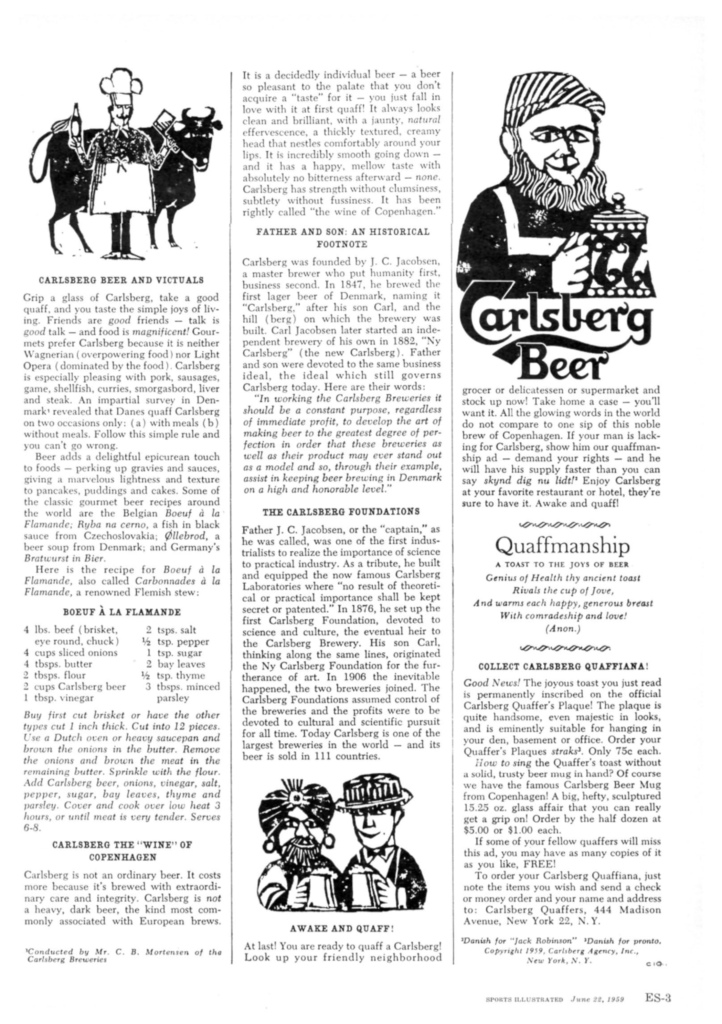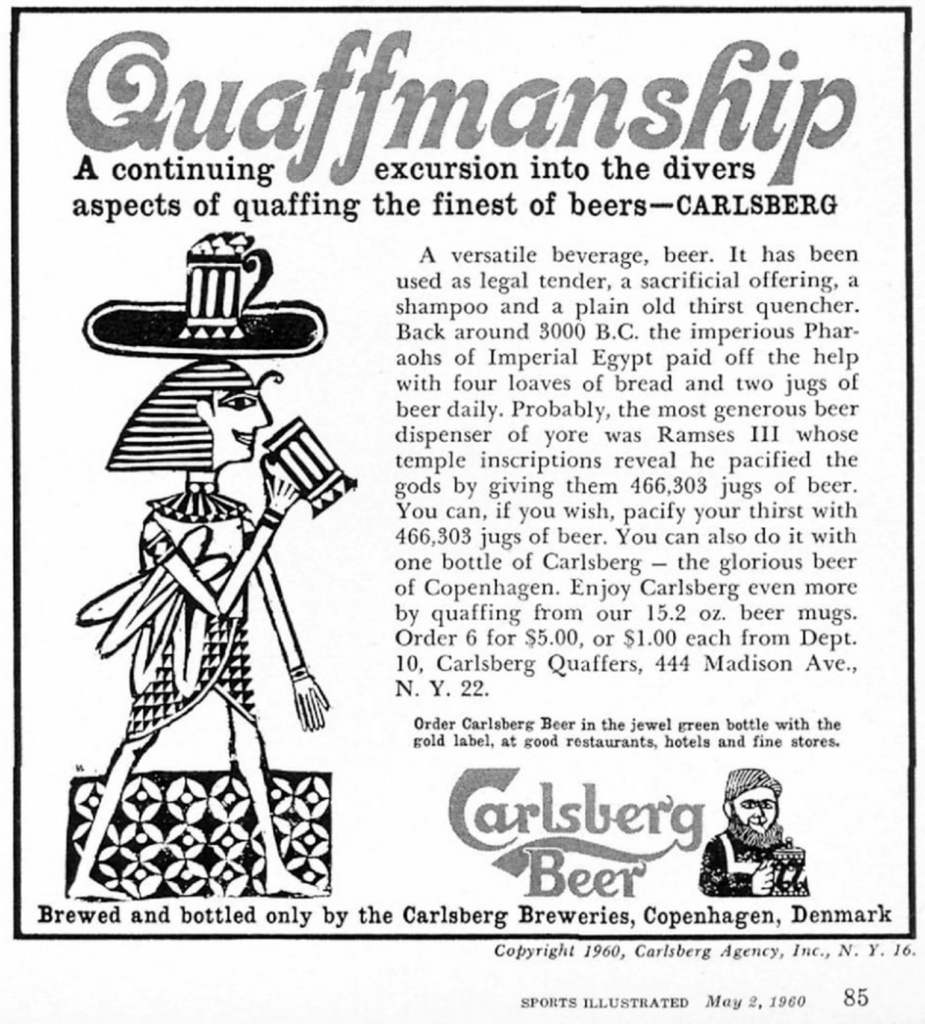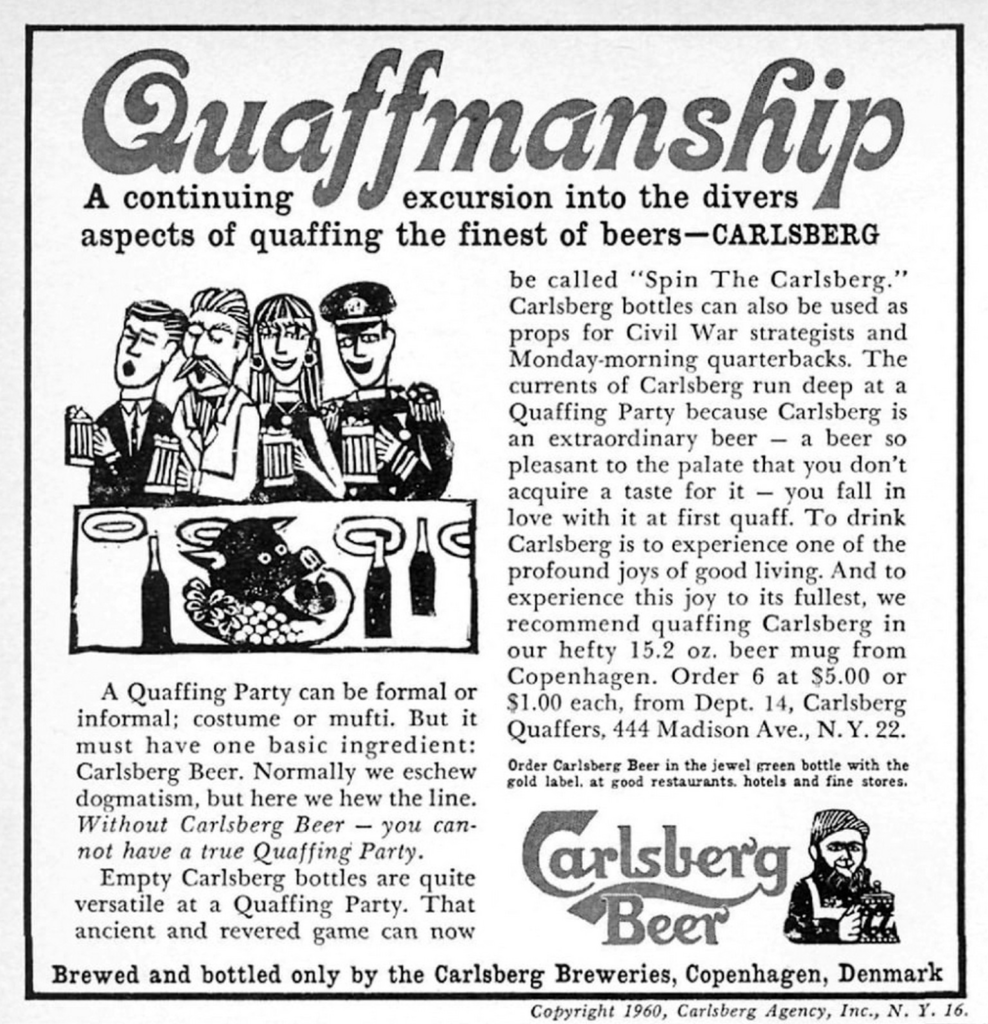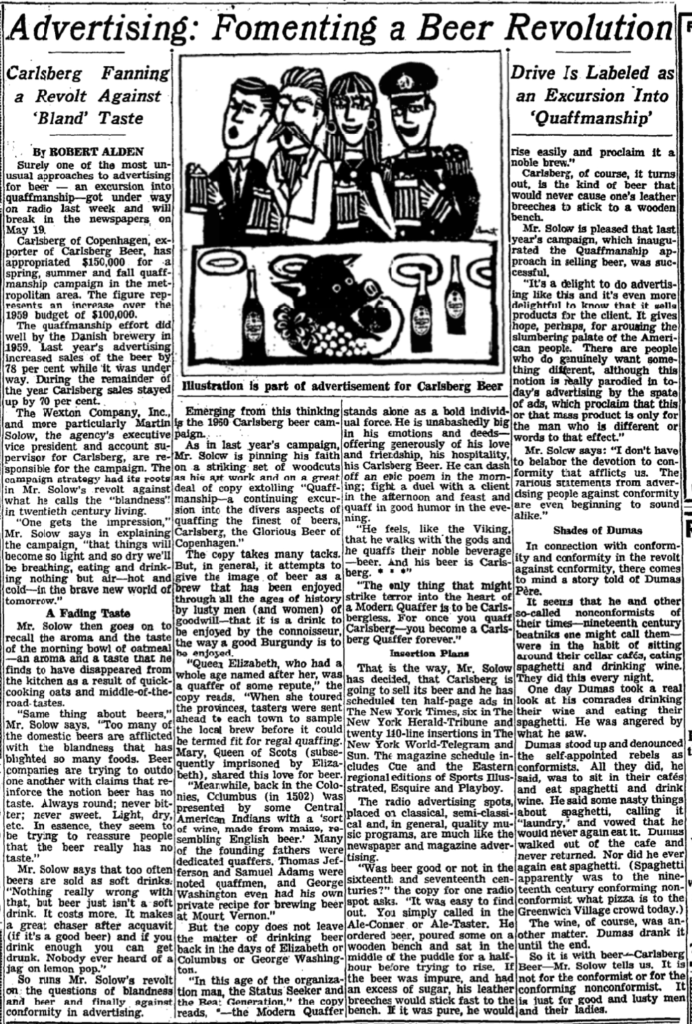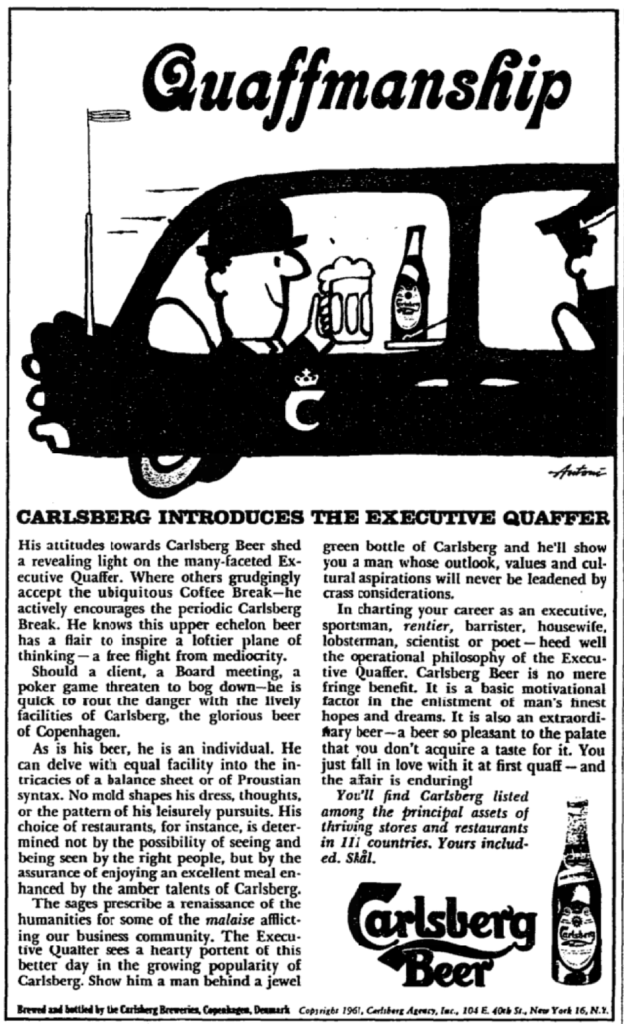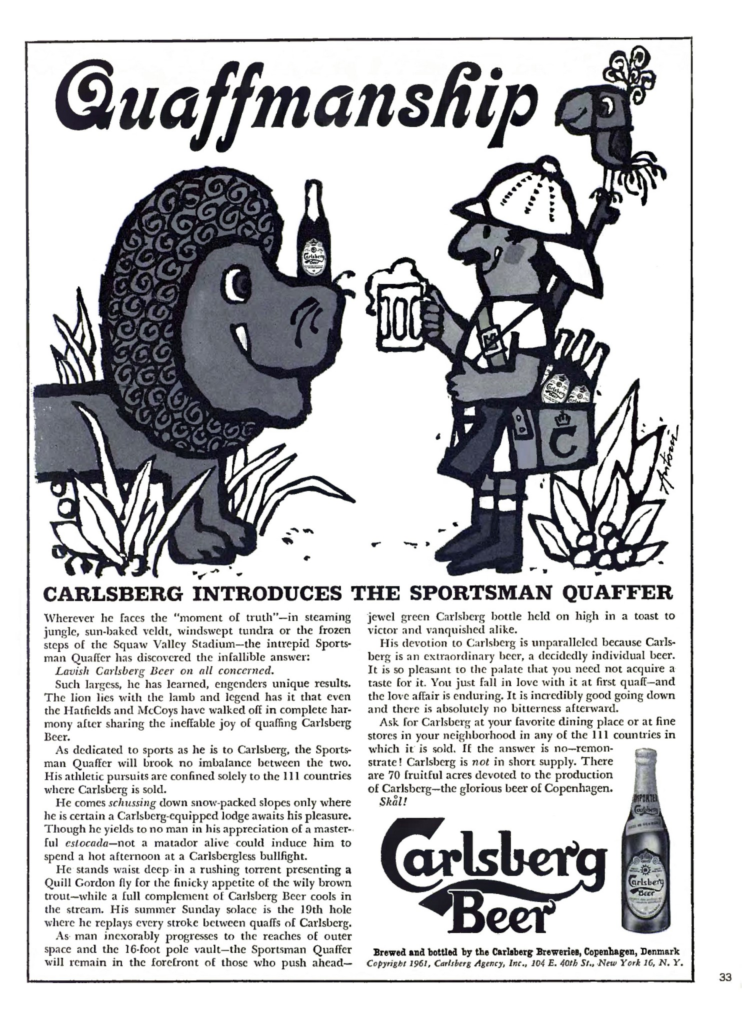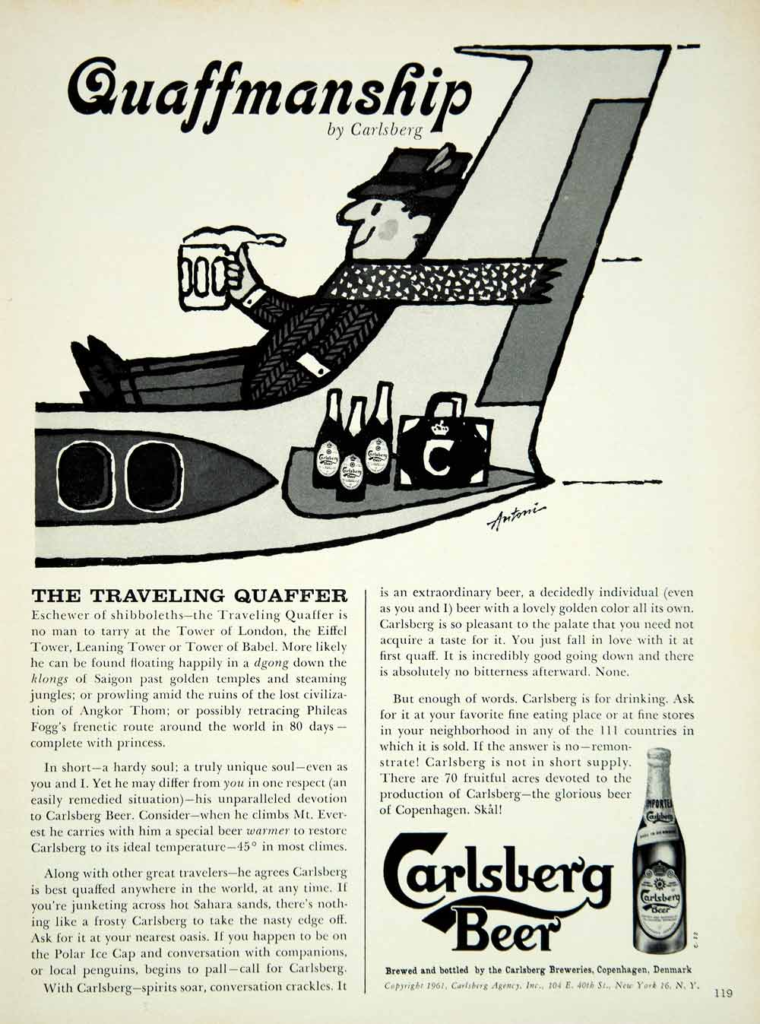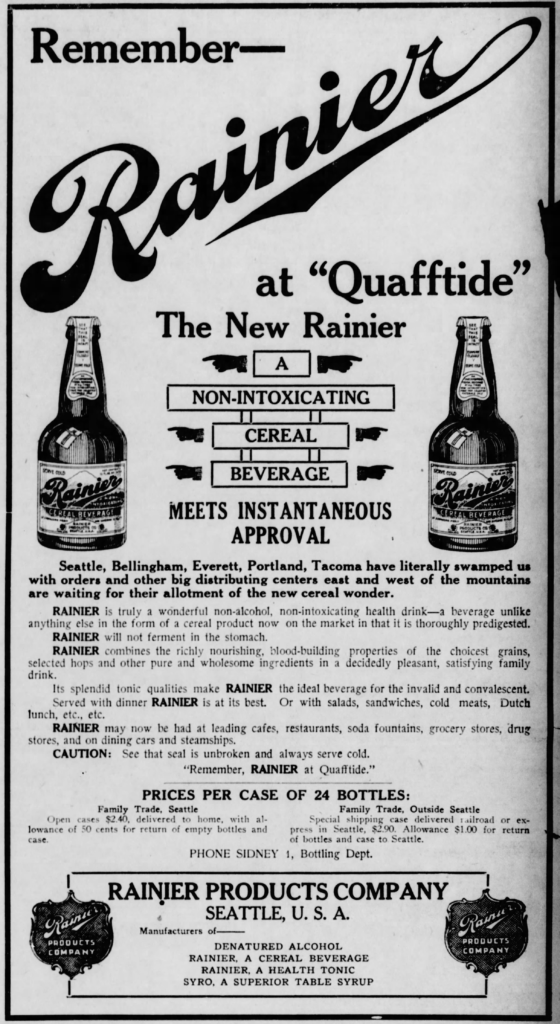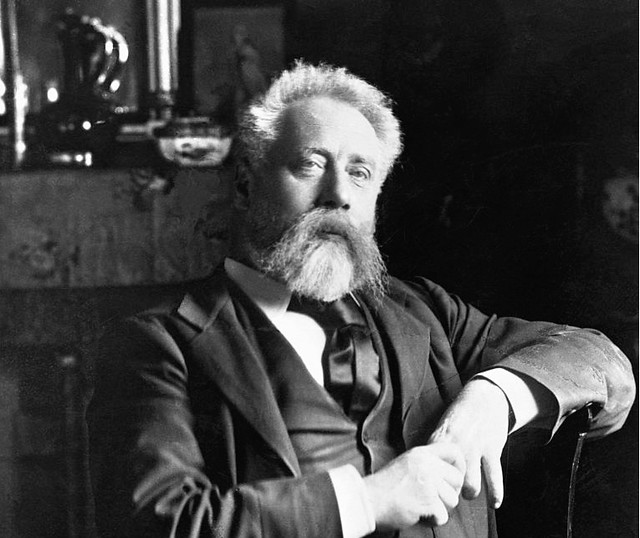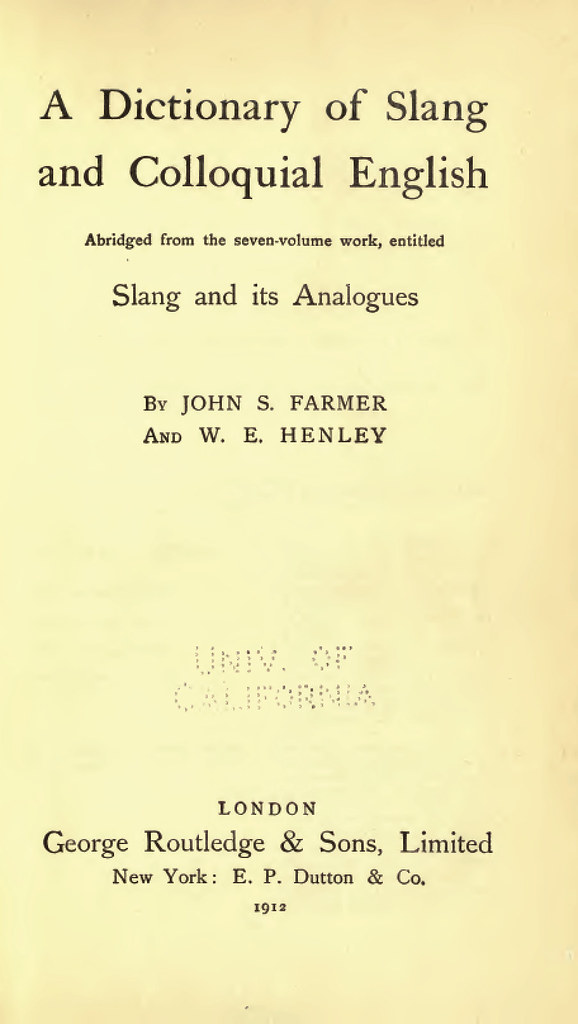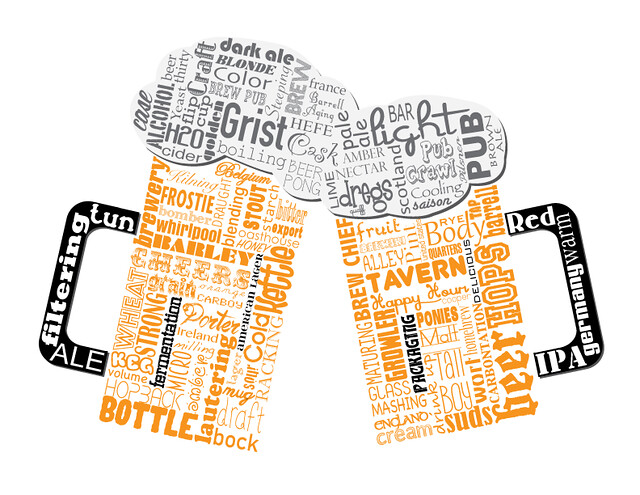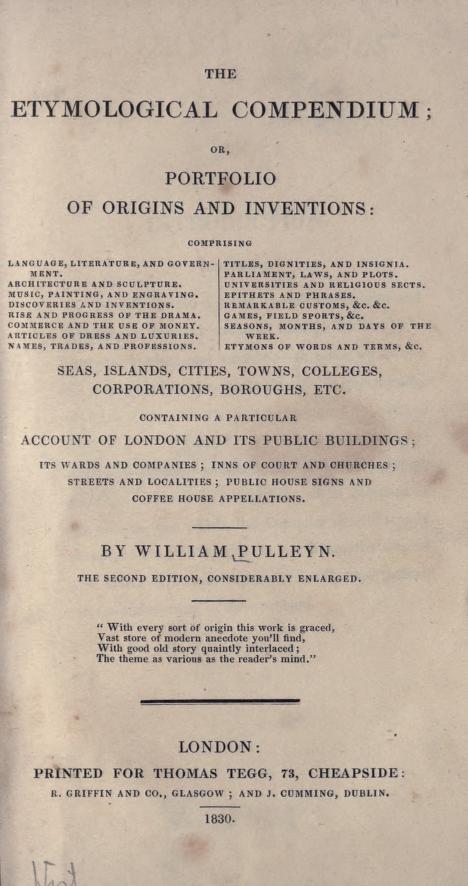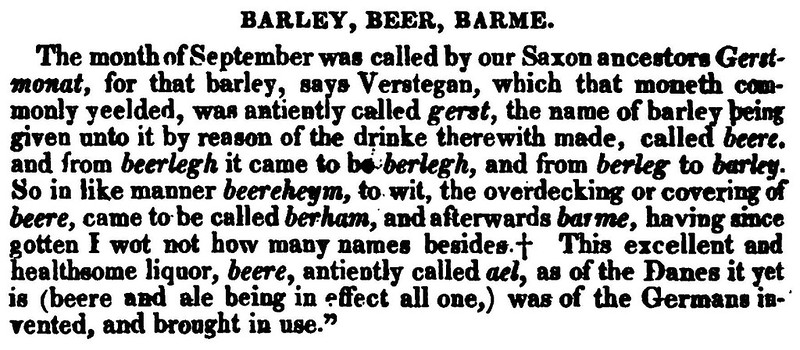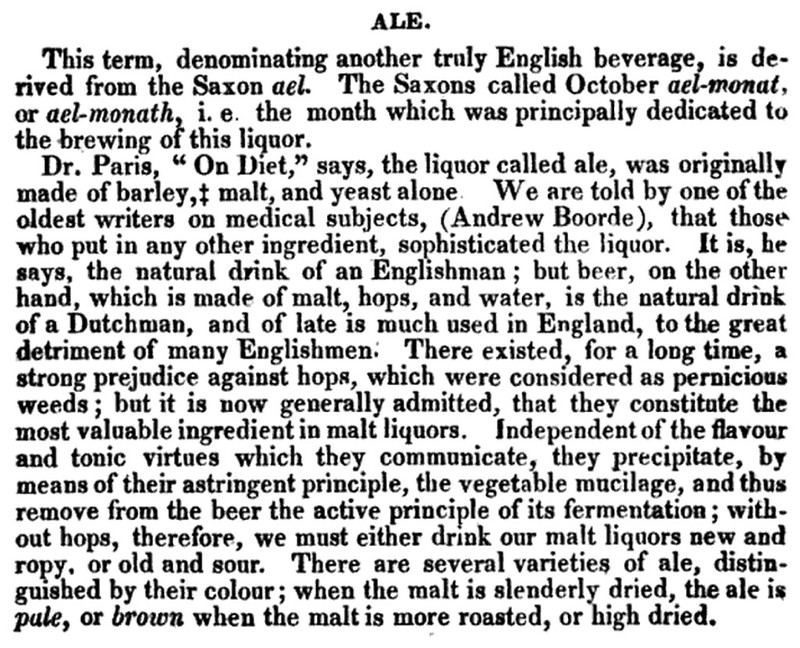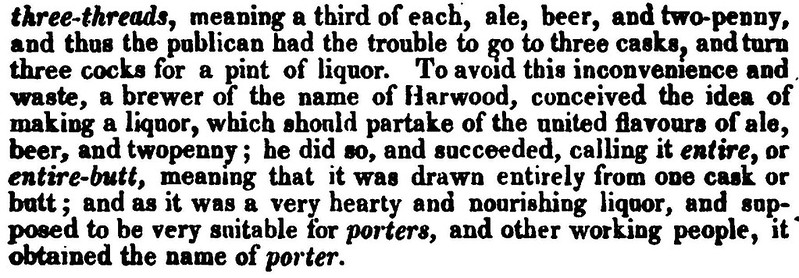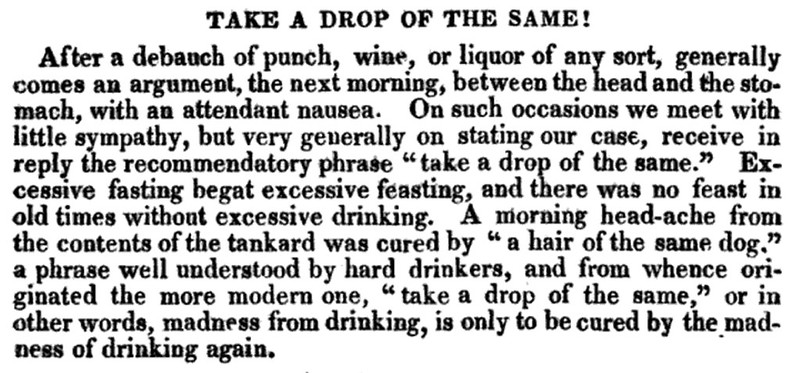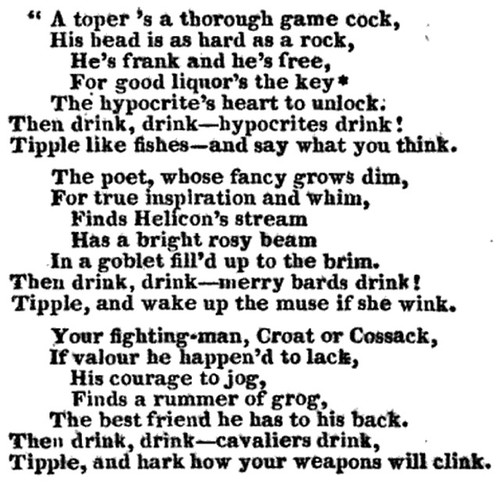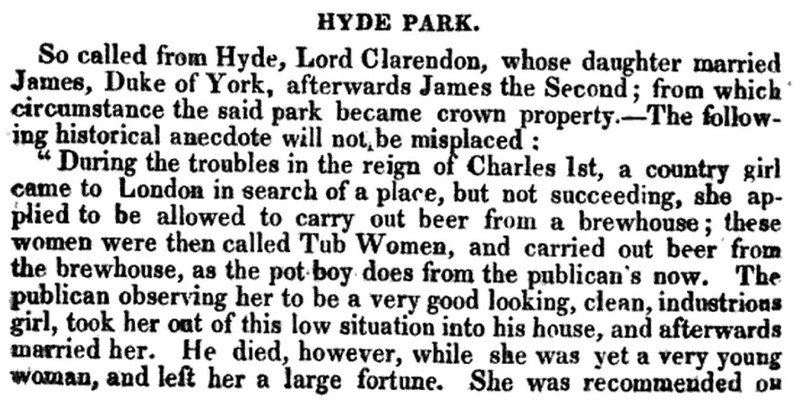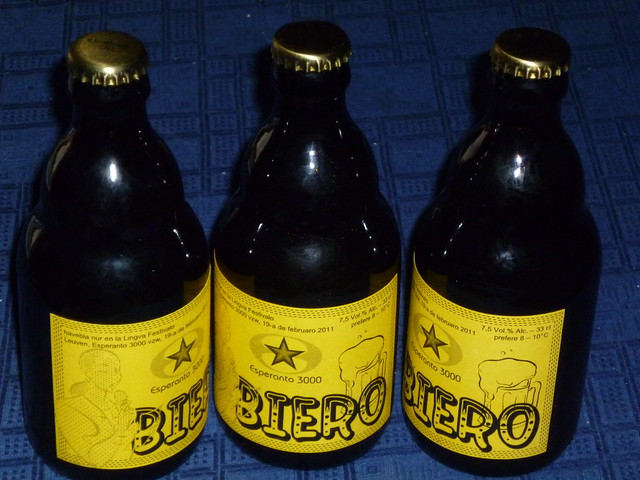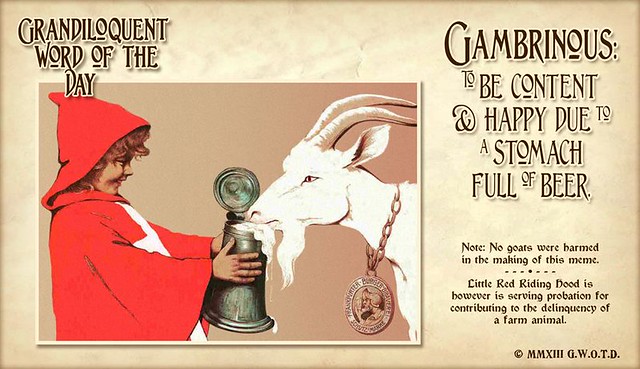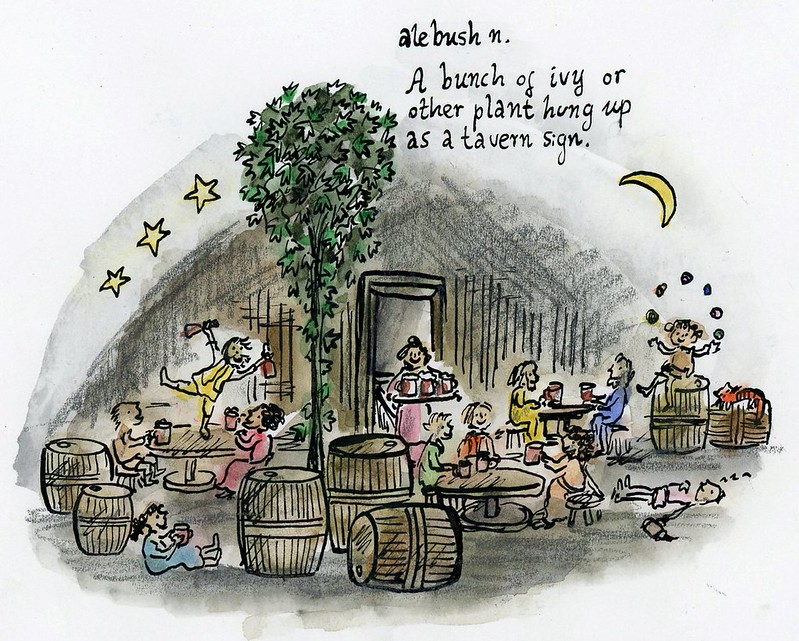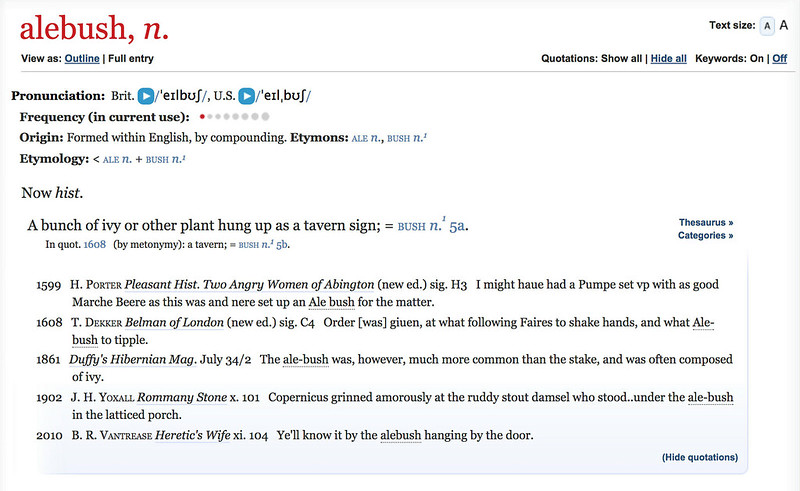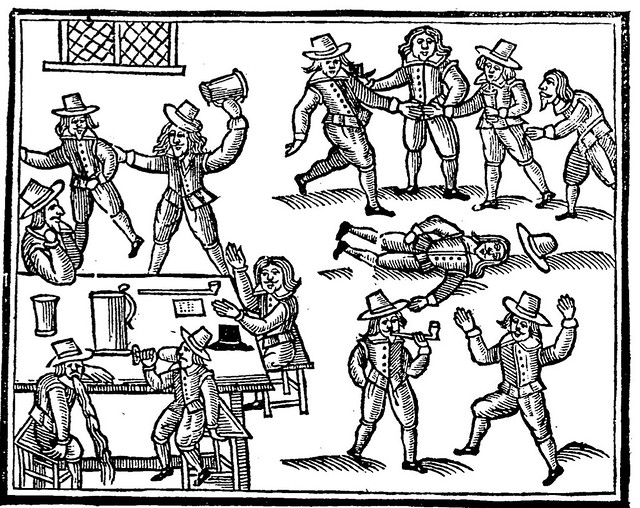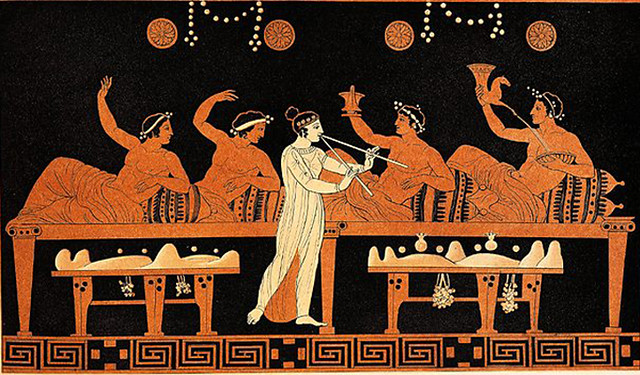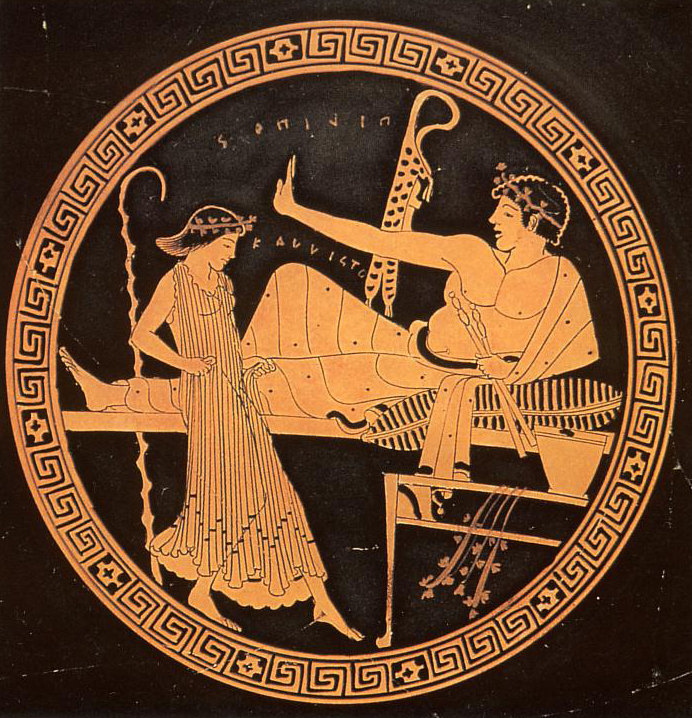
Today is the birthday of John Taylor, who was nicknamed “The Bard of Beer,” although he apparently referred to himself as “The Water Poet.” (August 24, 1578-1653). He was born in Gloucester, and “after his waterman apprenticeship he served (1596) in Essex’s fleet, and was present at Flores in 1597 and at a siege of Cadiz.”

Here’s part of his biography from his Wikipedia page:
He spent much of his life as a Thames waterman, a member of the guild of boatmen that ferried passengers across the River Thames in London, in the days when the London Bridge was the only passage between the banks. He became a member of the ruling oligarchy of the guild, serving as its clerk; it is mainly through his writings that history is familiar with the watermen’s disputes of 1641–42, in which an attempt was made to democratize the leadership of the Company. He details the uprisings in the pamphlets Iohn Taylors Manifestation … and To the Right Honorable Assembly … (Commons Petition), and in John Taylors Last Voyage and Adventure of 1641.
He was a prolific, if rough-hewn writer (a wit rather than a poet), with over one hundred and fifty publications in his lifetime. Many were gathered into the compilation All the Workes of John Taylor the Water Poet (London, 1630; facsimile reprint Scholar Press, Menston, Yorkshire, 1973); augmented by the Spenser Society’s edition of the Works of John Taylor … not included in the Folio edition of 1630 (5 volumes, 1870–78). Although his work was not sophisticated, he was a keen observer of people and styles in the seventeenth century, and his work is often studied by social historians. An example is his 1621 work Taylor’s Motto, which included a list of then-current card games and diversions.
He achieved notoriety by a series of eccentric journeys: for example, he travelled from London to Queenborough in a paper boat with two stockfish tied to canes for oars, described in “The Praise of Hemp-Seed”,[2] which was re-enacted in 2006. From his journey to Scotland in 1618, on which he took no money, Taylor published his Pennyless Pilgrimage. (Ben Jonson walked to Scotland in the same year.)
Taylor is one of the few credited early authors of a palindrome: in 1614, he wrote “Lewd did I live, & evil I did dwel.” He wrote a poem about Thomas Parr, a man who supposedly lived to the age of 152. He was also the author of a constructed language called Barmoodan.
Many of Taylor’s works were published by subscription; i.e., he would propose a book, ask for contributors, and write it when he had enough subscribers to undertake the printing costs. He had more than sixteen hundred subscribers to The Pennylesse Pilgrimage; or, the Moneylesse Perambulation of John Taylor, alias the Kings Magesties Water-Poet; How He TRAVAILED on Foot from London to Edenborough in Scotland, Not Carrying any Money To or Fro, Neither Begging, Borrowing, or Asking Meate, Drinke, or Lodging., published in 1618.

John Taylor, (born Aug. 24, 1580, Gloucester, Gloucestershire, Eng.—died December 1653, London), minor English poet, pamphleteer, and journalist who called himself “the Water Poet.”
The son of a surgeon, Taylor was sent to a grammar school but became, as he said, “mired in Latin accidence” and was apprenticed to a Thames boatman. He served in the navy and saw action at Cádiz (1596) and Flores (1597). Returning to London, he worked as a waterman transporting passengers up and down the River Thames and also held a semiofficial post at the Tower of London for several years. Taylor won fame by making a series of whimsical journeys that he described in lively, rollicking verse and prose. For example, he journeyed from London to Queenborough, Kent, in a paper boat with two stockfish tied to canes for oars and nearly drowned in the attempt. He made other water journeys between London, York, and Salisbury, and The Pennyles Pilgrimage. . . (1618) describes a trip he made on foot from London to Edinburgh without money. In 1620 he journeyed to Prague, where he was received by the queen of Bohemia. His humorous accounts of his journeys won the patronage of Ben Jonson, among others. Taylor also amused the court and the public in his paper war with another eccentric traveler, Thomas Coryate. In 1630 he published 63 pieces in All the Works of John Taylor the Water Poet, although he continued to publish prolifically afterward.
When the English Civil Wars began Taylor moved to Oxford, where he wrote royalist pamphlets. After the city surrendered (1645), he returned to London and kept a public house, “The Crown” (later “The Poet’s Head”), until his death.

The Ex-Ale-Tation of Ale
